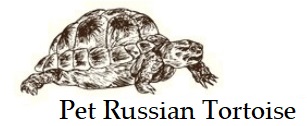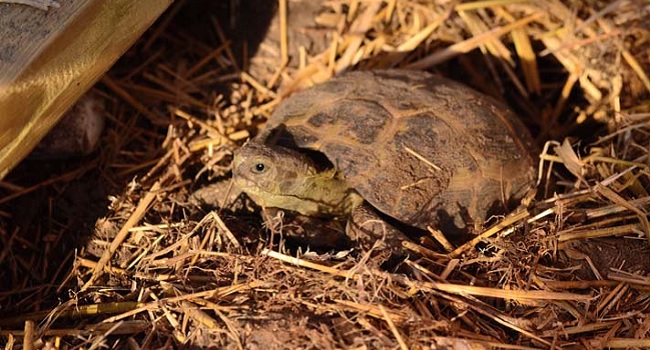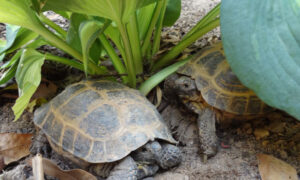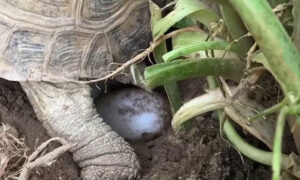Russian tortoises are a hibernating species of tortoises. In captivity, you do not have to hibernate a Russian tortoise. However in the wild Russian tortoises hibernate between October through March. When the weather begins to warm, the tortoise will naturally start to wake up.
Russian tortoises hibernate when the temperatures drop between 50 and 64 degrees Fahrenheit.
Is it Safe to Hibernate a Russian Tortoise in Captivity
Absolutely. However if your tortoise is sick or you are not 100% sure of how to safely hibernate your Russian tortoise, don’t attempt to do it.
If you are confident that you can safely hibernate your pet Russian tortoise, talk to your reptile veterinarian to make sure that your tortoise is ready to hibernate. Plan out when to start and how to wake up your tortoise.
- Limit food intake
- Prepare the hibernation plan. Outdoor hibernation or fridge hibernation
- Check your tortoise to ensure health
Risks Hibernating a Tortoise
There are many risks when hibernating a tortoise in captivity. The biggest risk is death. The tortoise could get frostbite and lost a limb. The tortoise can catch illness or infection that the body cannot fight or has trouble fighting because the immune system is suppressed.
If hibernating outside, predators can find the tortoise.
If hibernating inside in a refrigerator, the fridge can have complications. Often times, the fridge will warm up and then cool back off, which can wake the tortoise up and then suddenly put it back in hibernation. This can cause severe complications to the tortoise’s health during hibernation.
Do not hibernate for curiosity’s sake or for an experiment. Russian tortoises can thrive without hibernating.
Is My Tortoise Dead or Hibernating
It can be very alarming to find your Russian tortoise nearly unresponsive. If you are trying to hibernate or you forgot to bring your tortoise inside and the temperature outside dropped overnight, it is possible the tortoise’s body has started shutting down for hibernation. However, if you found your tortoise in a pile of snow, open and exposed, it’s also possible the tortoise froze.
Check to see if your tortoise is still alive by picking him up. If he retains muscle control, then he’s fine. You’ll want to SLOWLY warm him up. However if the legs or head droops or wobbles or the eyes are sunken in, the tortoise is likely dead. If the tortoise remains tucked in his shell, he still has muscle control.
A hibernating tortoise still breaths. Poke the tortoise gently to evoke a response.
If you’re not sure. 1) call your vet and 2) try to slowly warm the tortoise up. Slowly warming the tortoise up should wake up a hibernating tortoise.





